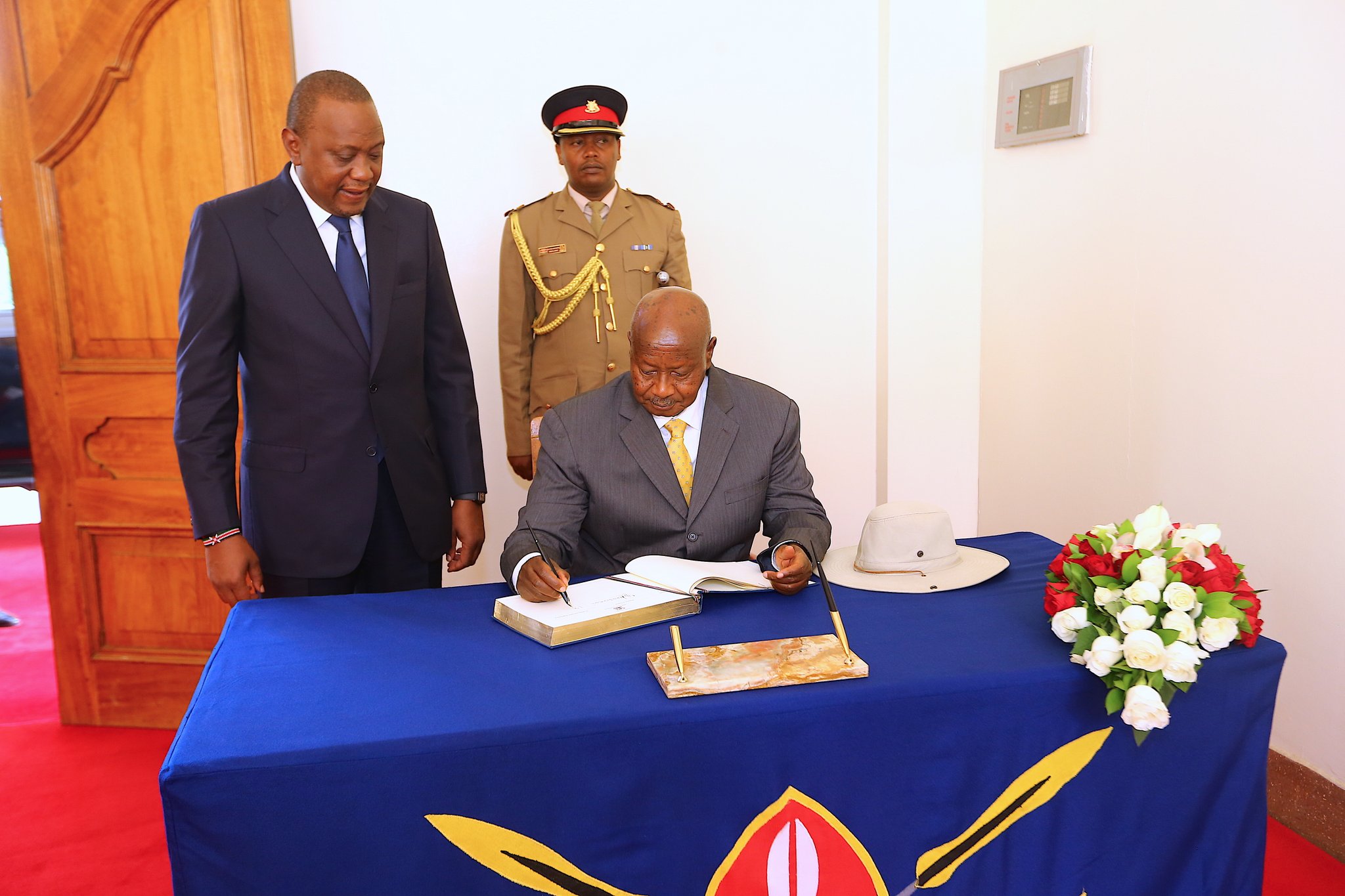President Yoweri Museveni has rejected directives by the Kenyan Government to have all transit cargo cleared in Naivasha instead of Mombasa. Kenya has been pushing for the SGR to play a key role in transporting cargo to Naivasha, instead of using the road network.
Kenya’s Transport Cabinet Secretary, James Macharia received a letter from his Ugandan counterpart, Katumba Wamala which explained in detail why they were against the directive that led to protests in Mombasa on Thursday, May 28.
In a report by the East African on Saturday, May 30, Uganda wants clearance at the Naivasha dry port to be optional.
The Standard, on Saturday, May 30, added that CS Macharia tried to woo Uganda into accepting the deal by offering incentives such as a 30-day free storage period.

More than half of transit cargo at the Mombasa port is transported to Uganda after Museveni and Uhuru struck a deal in 2019.
Uganda and Mombasa activists are not opposed to the idea of using SGR to transport cargo but want it to be used as an alternative, rather than a compulsory mode of transport.
Joining the protest, Shippers Council of East Africa CEO Gilbert Lang’at sided with road transporters defending their cause of worry.
Lang’at argued that despite the SGR being an investment that cost billions, road users should also be allowed to transport cargo.
“Since the government started moving containers by rail to the Embakasi ICD in Nairobi about three years ago, trucks depended on last-mile connectivity business.
“The concerns of Mombasa groups are genuine because their businesses won’t thrive with the opening of Naivasha port,” he stated.
On Thursday, May 28, a group of workers unions, businesses, and civil society organisations in Mombasa County revived protests against President Uhuru Kenyatta’s Naivasha dry port project.
Muslims for Human Rights (MUHURI) chairman Khelef Khalifa argued that moving port operations would leave Mombasa Port as nothing but a transit zone.
“The directive is giving the SGR an unfair advantage. What we are asking is for transporters to be given an option if they want to transport their goods via road, let them be allowed. The SGR project was driven by political reasons, not economical reasons, everything is shrouded in secrecy and has cost so much money,” Khalifa stated.